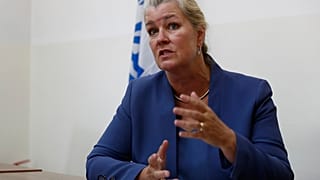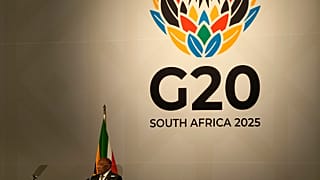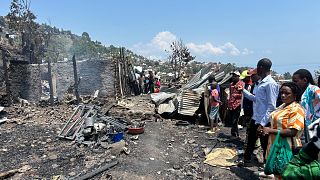Democratic Republic Of Congo
The United Nations World Food Programme (WFP) issued a dire warning on Thursday, revealing that three million people in the eastern Democratic Republic of the Congo now face emergency levels of hunger, a figure that has nearly doubled in the past year amid relentless conflict and a severe funding crisis.
WFP Country Director Cynthia Jones described an alarming reality for families, who are "skipping their meals, depleting all of their household assets. They're selling off their animals, their last goat."
The IPC food insecurity report confirms nearly 25 million people face high levels of hunger, with the three million in the "emergency" phase (IPC4) at immediate risk.
"People are already dying of hunger in parts of eastern DR Congo," the UN agency reported, underscoring the catastrophic human toll.
A perfect storm: conflict, displacement, and collapsed services
The crisis is fueled by ongoing fighting between M23 rebels—allegedly backed by Rwanda, which Kigali denies—and DRC government forces.
This has created one of the world's largest displacement crises, with 5.2 million people displaced, including 1.6 million this year alone.
Vital infrastructure has collapsed; banks are closed, and humanitarian access is crippled as airports in conflict zones remain shut.
"There's no money available... it has devastated livelihoods," Jones explained, urgently calling for a humanitarian air corridor to reach those in need.
Funding collapse forces WFP to slash lifesaving aid
Despite the exploding needs, the WFP is being forced to make brutal cuts due to a massive funding shortfall.
Assistance has already been reduced from one million people to 600,000, and without an immediate $350 million, that number will drop to just 300,000 by March—a mere 10% of those in desperate need.
Jones warned of a "total pipeline break" by March 2026, which would mean "a complete halt of all emergency food assistance" in the eastern provinces, where exhausted families surviving "devastating sequences of violence" are clinging to life.











02:25
AFC/M23 rebellion sets up a parallel justice system in North Kivu
01:10
Relief supplies arrive after Hurricane Melissa devastation
00:10
38 M23 rebel fighters surrender to Congolese army in eastern DRC
01:00
DRC and M23 agree to create an international body to oversee ceasefire
00:59
Congolese government and M23 to hold 6th round of talks
01:51
DRC President Tshisekedi appeals to Kagame to halt M23 violence